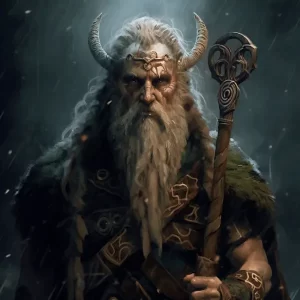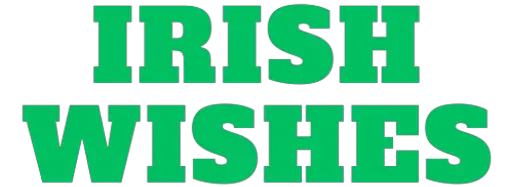Dagda the Celtic God
Celtic mythology has long captivated the imagination with its tales of heroes, magical beings, and gods that embody the rich cultural heritage of the Celtic people. Among the myriad gods and goddesses of the Celtic pantheon, one figure stands out as a symbol of abundance, fertility, and wisdom – the enigmatic Dagda. In this article, we will delve into the fascinating mythology surrounding Dagda and explore his significance in ancient Ireland and beyond.
The Origins of Dagda
The Proto-Celtic Roots of Dagda’s Name
The name “Dagda” is believed to be derived from the Proto-Celtic “*Dagodeiwos,” which translates to “the good god” or “the shining one.” This etymology underscores his status as a benevolent and radiant figure in the Celtic pantheon. The connection between Dagda and the concept of goodness highlights his role as a protector and provider for his people.
The Tuatha Dé Danann: A Mythological Legacy
The Tuatha Dé Danann, a supernatural race in Irish mythology, are often regarded as the ancestors of the Irish gods and goddesses. They are believed to have come to Ireland from the mythical islands in the west or the “Otherworld” to establish their rule. Known for their exceptional skill in magic, craftsmanship, and the arts, the Tuatha Dé Danann left an indelible mark on Irish culture and society. He is a prominent figure among them, embodying their wisdom, power, and mystical abilities.
The Connection with Ancient Irish Culture and Society
Dagda’s mythology is deeply intertwined with ancient Irish culture and society. As a god of abundance and fertility, he played a crucial role in the agricultural cycle and the prosperity of the land. His wisdom and leadership qualities would have been revered by the chieftains and warriors of ancient Ireland. Furthermore, his connection to the harp, an instrument of great importance in Irish culture, emphasizes his influence on the artistic and creative aspects of society.
Parallels with Other Indo-European Deities
The figure of Dagda shares some characteristics with other Indo-European deities, such as the Norse god Odin and the Hindu god Indra. Like Dagda, these gods are associated with wisdom, war, and kingship. These similarities suggest that this origins might be rooted in the larger tapestry of Indo-European mythology, which was shaped by the migration and cultural exchange of various ancient peoples.

The Role of Oral Tradition and the Influence of Christianity
His origins and his mythology can be traced back to the oral traditions of the Celtic people, which were eventually recorded in medieval manuscripts by Christian monks. As a result, some aspects of Dagda’s mythology may have been influenced or altered by the Christian worldview. For instance, the Tuatha Dé Danann’s transition from divine beings to the “fairies” of Irish folklore can be attributed to the Christianization of Ireland and the efforts to reconcile pagan beliefs with Christian teachings. Despite these changes, his core attributes and his significance in Celtic mythology have endured through the centuries.
The Attributes of Dagda
As a god of abundance and fertility, he is often depicted as a powerful figure with immense knowledge and skill. His attributes include:
- The Club: He wields a massive club with the power to slay nine men in a single blow and, conversely, to restore life with the handle’s touch.
- The Cauldron of Plenty: He possesses a magical cauldron that never runs empty, symbolizing nourishment and regeneration.
- The Harp: Dagda’s harp, Uaithne, has the power to control the seasons and is associated with the emotive force of music. It also represents the balance of life and the cyclical nature of existence.
- Leadership: He is known as a wise and skilled leader who commands the respect and loyalty of his people.
The Family and Relationships of Dagda
His family and relationships are central to his mythology:
- The Morrigan: As a goddess of war and sovereignty, the Morrigan is often linked to Dagda as his consort. Their union represents the balance between life and death, fertility and destruction.
- Bóinn: The goddess of the River Boyne and fertility, Bóinn is said to be his wife and the mother of his children.
- Brigid: As a goddess of fire, poetry, and healing, Brigid is one of his daughters and a prominent figure in Irish mythology.
- Aengus: A god of love, youth, and poetic inspiration, Aengus is one of his sons and plays a significant role in Celtic mythology.
The Mythology of Dagda
His mythology is filled with intriguing stories that reveal his power, wisdom, and complexity. Key tales include:
- The Second Battle of Mag Tuired: During this epic battle, he uses his magical harp to bring about victory for the Tuatha Dé Danann against the oppressive Fomorians.
- Dagda and the Morrigan: Their union on the eve of battle is seen as a ritual to ensure victory and a symbol of the interdependence of life and death.
- The Story of Dagda’s Magical Harp: When his harp is stolen by the Fomorians, Dagda retrieves it and uses its power to bring about their defeat.
The Legacy of Dagda
His influence continues to be felt in Irish folklore, literature, and modern spiritual practices:
- Folklore and Literature: His stories and exploits have inspired countless retellings and adaptations in Irish folklore and literature, serving as a testament to his enduring appeal.
- Modern-day Celebrations and Rituals: Many contemporary pagan and neo-pagan practices honor him and incorporate elements of his mythology into their rituals, highlighting the continued relevance of his stories in modern spiritual life.
- Celtic Paganism and Neo-Paganism: His continued presence in Celtic paganism and neo-paganism demonstrates the lasting impact of his mythology and the ongoing interest in exploring ancient Celtic spirituality.
The enduring allure of Dagda lies in his multi-faceted character and the powerful symbolism associated with his attributes. As a god of abundance, fertility, and wisdom, he embodies the complexities of life and the cycles of nature. His mythology offers valuable insights into the beliefs and cultural practices of ancient Ireland, and his continued relevance in modern spiritual practices serves as a reminder of the timeless nature of these ancient stories.

